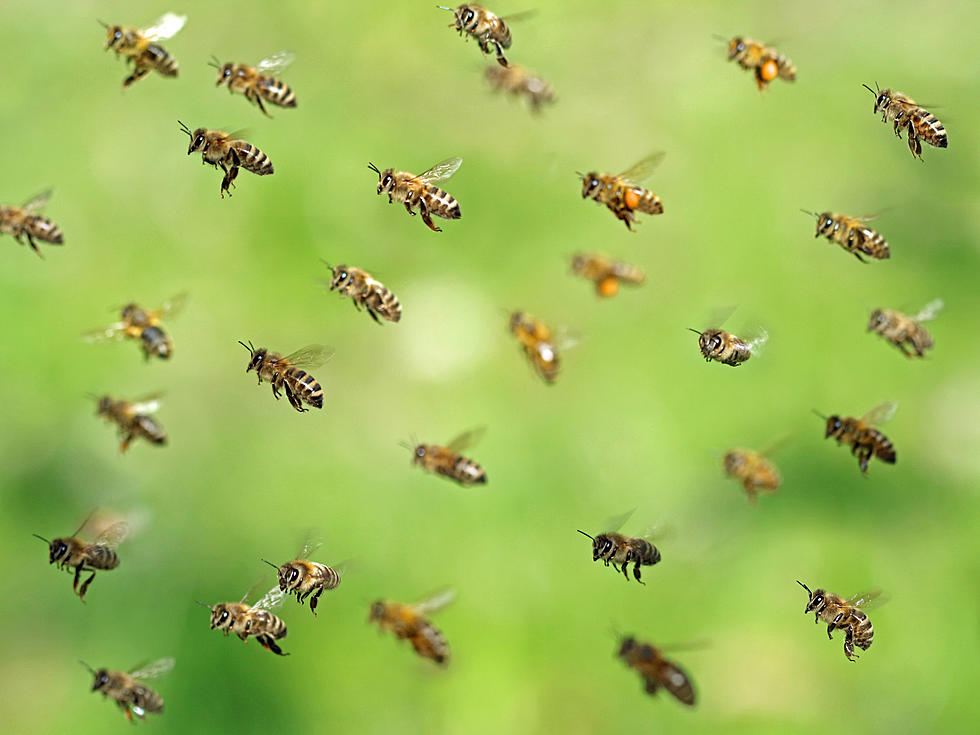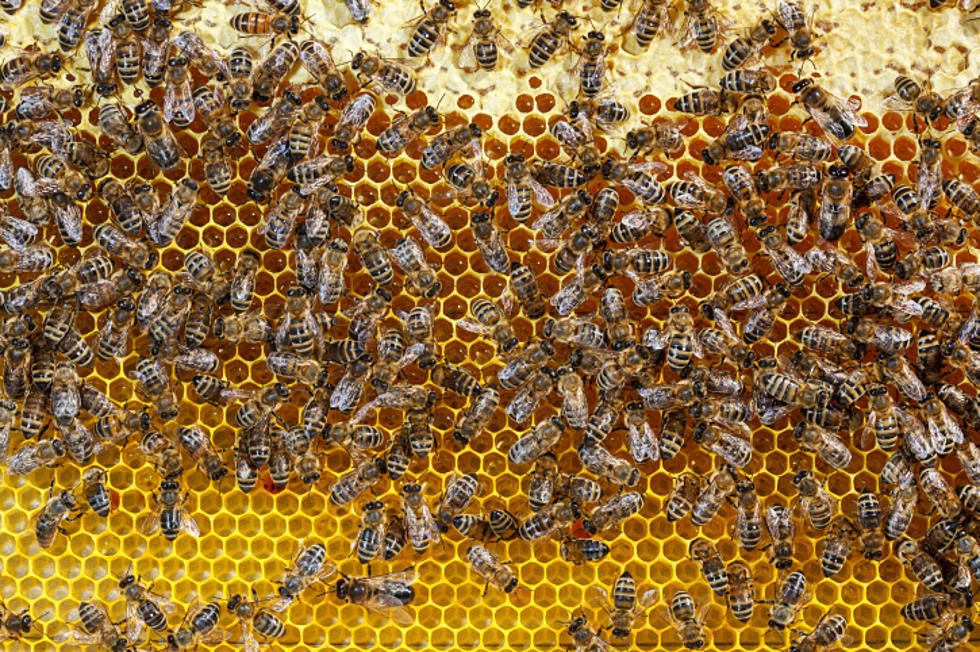
We Had a Huge Run In With A Ton Of Bees (And You Can, Too!)
So just like a lot of you guys, I did some yard work this weekend. Normally I don't do a lot of work outside, because my father has a riding lawn mower and an attitude, so usually it's handled quite well.
But NJ needed a project, he needed something to do other than play Pokémon Go this past weekend. So we put our heads together and decided we'd get rid of some of the leaves in the beds of my flowers, we'd cut down some dead growth, all that good stuff.
Sure, there was a lot more do than we thought. Isn't that always the way? We were raking, we were piling, we were cutting, etc. The wind was blowing a little, but it wasn't a big deal. Then, I noticed... a lot of bees.
Like, a lot. There were... easily dozens of them. All over the yard. I was nervous at first, because I know bees are very important to nature and the environment. And, you know, I've seen The Wicker Man (you know, the one with Nic Cage). What if I accidentally step on one? Or if I am grabbing some leaves, but grab a bee instead? I didn't want to get stung!

Well, turns out, they didn't care about us one bit. They continued to do their thing, we did ours, and our paths did not cross. Which... was odd to me, because I expected, you know, to have angry bees on our hands. We must have disrupted their homes or something, right? Kind of.
Turns out, these are called ground bees. There are several different kinds of ground bees, they can be called alkali bees, bumble bees, leafcutter bees, mining or digger bees and sweat bees. Keep in mind, these are NOT Yellowjackets, wasps, or hornets. Those behave in a completely different way.
Ground bee queens do not defend their nesting areas and are very docile and unlikely to sting, posing little or no threat to people. The males often patrol an area inhabited by females seeking mates. While the males can be very active and seem aggressive, they lack a sting and are also harmless.
Turns out, those little holes that we thought might be ant hills are actually ground bee nesting areas. So when we moved the leaves, the bees were like, "Bzz Bzzz bzzz?" Which of course, we all know translates to "Huh? What's goin on?" But, since the males don't sting and aren't aggressive about their queen, they just kind of... mind their own.
So, if you have ground bees, here's the deal. You don't need to do a thing about them unless you're really, really allergic (and honestly, you could avoid them). They apparently only come out at Springtime, and quickly move on as the spring rains come. In fact, the little holes they make for their nests can be helpful to you, because they can serve as a way to aerate your lawn. The little holes also help when you seed your lawn, helping to hide the seeds from the birds. If you can wait the ground bees out, they usually should be gone in a couple of weeks.
But, if you really really need to get rid of them ASAP, you can just really, really water your lawn and they'll move on. Think sprinkler system. They like dry soil. They don't have a hive or anything you have to get rid of, they pretty much raise their own babies instead of the way you think about honeybees, for example. While you can see a hive somewhere for other kinds of bees, these bees just burrow a bit underground and have their babies and then pretty much die.
Have you ever encountered a huge swarm of any kind of insect? What did you do?
Buzzingly yours,
Behka
LOOK: The states with the most UFO sightings
Gallery Credit: Nicole Caldwell & Matt Albasi
More From Mix 92.3









